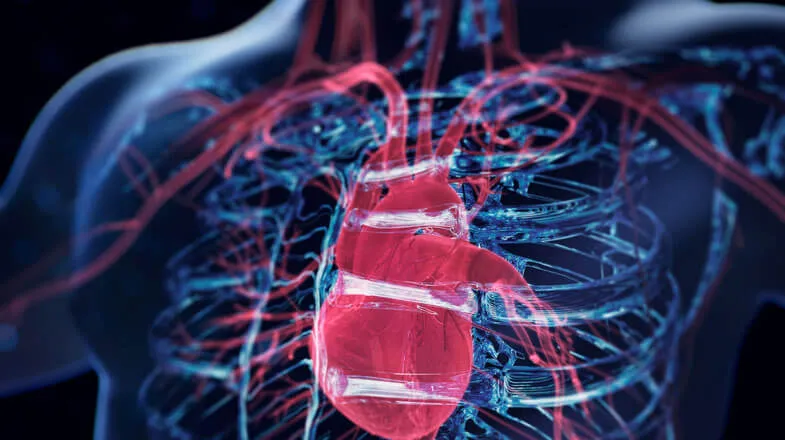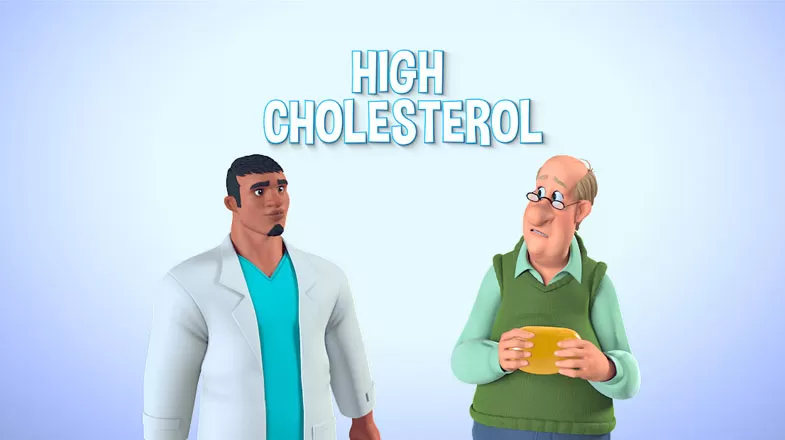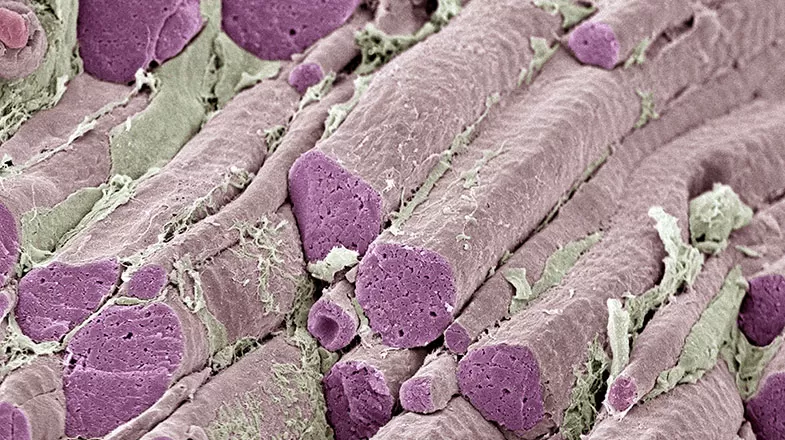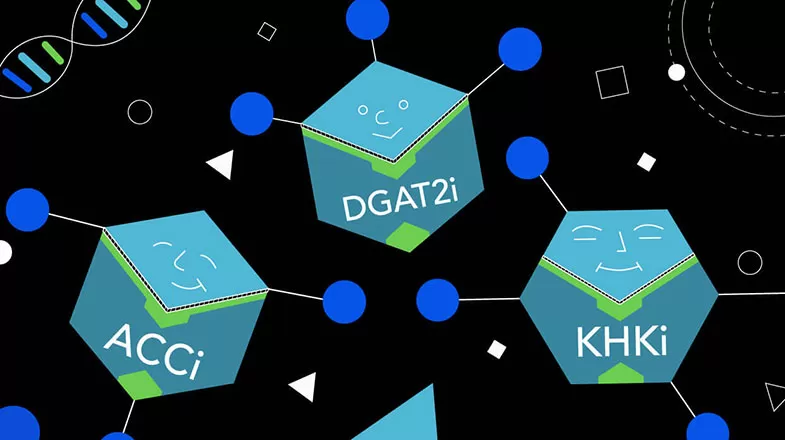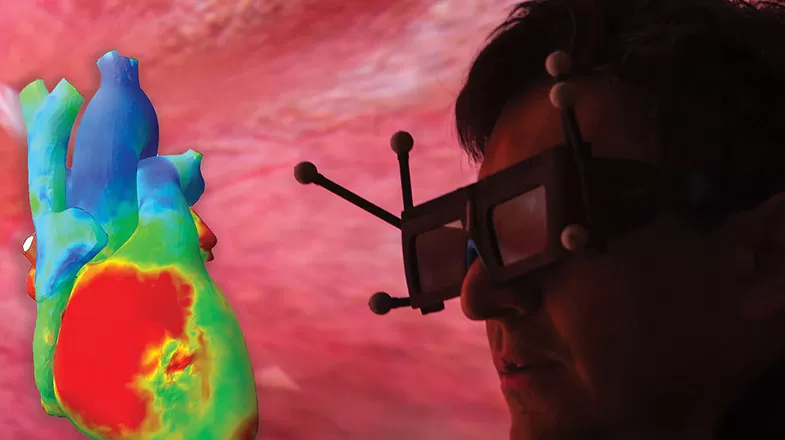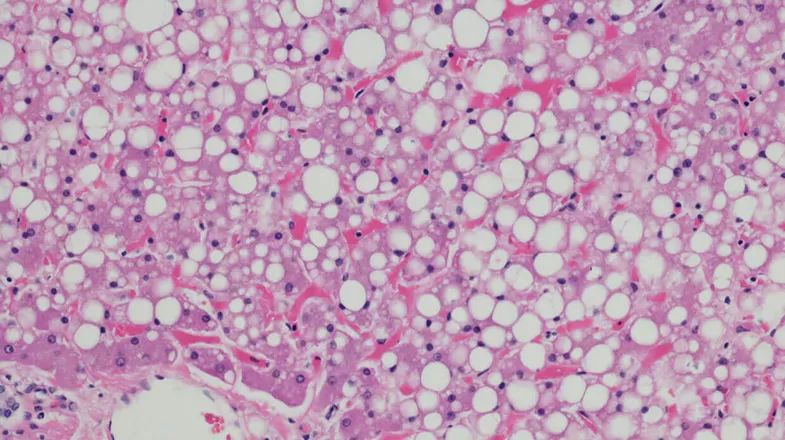Cardiovascular Disease Articles
Featured Articles
Read our latest stories on the people and scientific innovations making a difference in patients’ lives.
Science & Innovation
Brighter Together: How the Pharmaceutical Industry is Shining a Light on a Rare Cause of Heart Failure
Roughly one in three Americans is at risk for heart failure1, a condition where the heart can no longer effectively pump blood. And one in four will develop heart failure at some point in their lives1. Behind these statistics is a complex issue: the causes of heart failure differ widely among affected individuals. And identifying the underlying cause – especially if it’s rare – can be tricky.Among the less recognized causes is transthyretin amyloid cardiomyopathy, or ATTR-CM, which can mimic...
Science & Innovation
Harnessing the Power of AI to Detect ATTR-CM
Artificial intelligence (AI) has quietly become a part of our daily lives – through personalized recommendations, virtual assistants, or smart devices, we barely notice it anymore. Yet many of us might not realize the advances AI is making in healthcare. From accelerating drug discovery to improving disease detection, it is transforming the way we understand and manage health.AI has had numerous applications in cardiology in recent years, from analyzing results of cardiac imaging tests to...
High Cholesterol
FAST FACTS Cholesterol is a soft, wax-like substance that is manufactured by your body, but can be absorbed from foods like meat, poultry, and full-fat dairy Cholesterol circulates in the blood, and as the levels of cholesterol in your blood rise, so does your chance of getting heart disease or having a stroke Raised cholesterol is estimated to cause 2.6 million deaths yearly To confirm if you have high blood cholesterol, your doctor may ask you to undergo a blood test Certain factors can...
Living & Wellbeing
Matter of Moments: Elevating Awareness of AFib and its Connection to Stroke Together with Yahoo! Lifestyle
Atrial fibrillation, or AFib, is a common type of irregular heartbeat that puts people at greater risk of having a stroke and the prevalence of AFib is higher in people aged 65 and older.1Further, AFib is projected to affect around 12 million Americans by 2030.3 Yet, a Harris Poll survey of 1,010 U.S. adults fielded on behalf of the Bristol Myers Squibb-Pfizer Alliance showed the majority of people over the age of 40 are unfamiliar with the condition.4September marks AFib Awareness Month and Mat...
Sweet Science: How Insights into Fructose Metabolism Are Helping to Fight Liver Disease
If you check the labels on your favorite jarred marinara sauce, low-calorie salad dressing, or loaf of bread, you may be surprised to find that they contain added simple sugars — one of the most popular forms of which is high-fructose corn syrup (HFCS), a sweetener used in many processed foods.Over the past four decades, sugar has steadily crept into American diets — a trend that can be largely attributed to the food industry’s embrace of HFCS, used to enhance the flavor of all types of products...
Living & Wellbeing
Three Things to Know About Venous Thromboembolism and Cancer
Venous thromboembolism (VTE) can be a dangerous, potentially deadly medical condition that is a leading cause of death and disability worldwide and the third most common cause of vascular death after heart attack and stroke.1 VTE encompasses two serious conditions: deep vein thrombosis (DVT), a blood clot in a deep vein, and pulmonary embolism (PE), a potentially life-threatening condition in which a blood clot blocks a blood vessel in the lungs. Despite the potential dangers of this condition...
Cachexia Insights: Helping Improve Quality of Life in Chronically Ill Patients
It’s an experience familiar to almost anyone with a family member or friend who has fought a terminal illness, such as cancer or heart failure. In the final stages of life, it can seem as though their loved one is wasting away. This dramatic loss of muscle and fat is caused by cachexia, a wasting disorder that afflicts patients in the late stage of nearly every chronic illness. It’s the immediate cause of death in nearly 20 to 40 percent of cancer patients. “So many people can relate to someone...
Meet the Team: Homegrown Therapies Get Ready to Fight NASH
One of the biggest public health problems of our time is likely soon to face off with a new wave of cutting-edge medicines. As non-alcoholic steatohepatitis (NASH), a severe form of non-alcoholic fatty liver disease, or NAFLD, continues to be a growing public health threat, scientists are racing to develop treatments. There is currently no FDA-approved medicine for NASH, but nearly 50 candidates, including three from Pfizer, are in clinical testing — one or more which will hopefully be the next...
Living & Wellbeing
Matter of Moments: Recognizing AFib-Stroke Risk
AFib Fast Facts: Atrial fibrillation, or AFib, is a common type of an irregular heartbeat.4 During AFib, the upper chambers of the heart beat irregularly, or too quickly, and do not pump all of the blood to the lower chambers, causing some blood to pool, and potentially form clots. If a clot breaks loose, it can travel to the brain and lead to a stroke.4 The prevalence of AFib is higher in people aged 65 and older. About 9% of people aged 65 years or older have AFib...
Quantifying Matters of the Heart: Using Mathematical Modeling to Simulate Vital Organs
Songwriters, poets, and novelists have long tried to capture the intricacies of the heart. But it’s the quants who might finally do it. The Living Heart Project, initiated by the firm Dassault Systémes, is applying the advanced technology that the automotive and aerospace industries use to realistically simulate the heart. The project has solicited input from cardiovascular researchers, biopharmaceutical companies such as Pfizer, regulatory agencies and practicing doctors to develop a model...
Living & Wellbeing
The Value of AFib Screening: Bridging the Gap Between the Undiagnosed and Early Detection
AFib and the Devastating Impact of StrokePeople who have atrial fibrillation, or AFib, are five times more likely to have a stroke.1 In 25 percent of people who suffer an AFib-related stroke, their stroke was the first sign of previously undiagnosed AFib – meaning they were unaware of having a condition that substantially increased their risk of stroke.2But first, what is AFib?AFib is a common type of irregular heartbeat. While the normal heart beats 60 to 100 times per minute, someone with AFib...
International Project to Help Detect a Liver Disease Called NASH Gets $35M Boost
Imagine if the only way to know whether you have diabetes was for a doctor to take a biopsy of your pancreas, rather than being able to check your glucose levels using a simple blood test. That is the current state of affairs for a disease known as NASH (non-alcoholic steatohepatitis) in which the liver is damaged by inflammation due to a buildup of fats. NASH is a progressive subtype of non-alcoholic fatty liver disease (NAFLD). Associated risk factors for NAFLD, NASH and the later stages of...
Media Resources & Contact Information
Anyone may view our press releases, press statements, and press kits. However, to ensure that customers, investors, and others receive the appropriate attention, Pfizer Media Contacts may only respond to calls and emails from professional journalists.

